
Editor
Sen Gupta, a doctor who only treats upper-class patients, is forced to confront his own moral and medical beliefs as he discovers rural India during an unexpected stop at a village. He finds a breathless man lying on the side of the road. With little sympathy, the doctor sends him back to his own village for treatment. When Dr. Gupta discovers that the villages wants a witch doctor to treat the man, he attends the exorcism and is shocked. A transformation of the cold city man then follows.

Editor
Goopy Bagha Phire Elo (Bengali: গুপী বাঘা ফিরে এলো) (1992) is the third sequel of Goopy Gyne Bagha Byne series. It was directed by Sandip Ray and written by his father Satyajit Ray. This film was released eleven years after its predecessor Hirak Rajar Deshe.
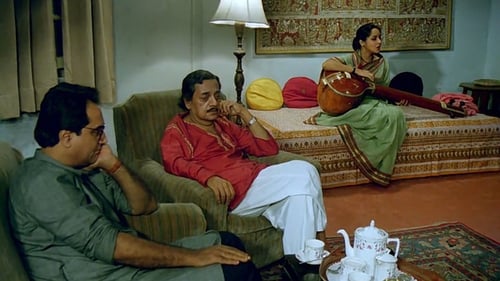
Editor
A well-off Indian family is paid an unexpected, and rather unwanted, visit by a man claiming to be the woman's long lost uncle. The initial suspicion with which they greet the man slowly dissolves as he regales them with stories of his travels, tales that are at odds with their conventional middle class perspective on the world.

Editor
When a wealthy patriarch falls ill on his 70th birthday, three of his sons rush in from Calcutta, leading to a reunion filled with painful ironies and lingering disillusionment. As the family—including an addled fourth son (Soumitra Chatterjee) who lives with the old man—watches and waits, the static occasion brings out simmering tensions in their family dynamics, from the father’s moral rectitude to the business ambition of two sons and the withdrawal of their siblings.

Editor
Ashoke Gupta is an idealistic doctor working in a town near Calcutta. He discovers that the water at a popular temple is the source of an outbreak of typhoid and hepatitis. In order to save lives, he risks his career to try and call attention to this polluted water source, while a local group of building contractors attempt to discredit him in various ways.

Editor
The film presents the life and work of the writer Sukumar Ray, Satyajit Ray's father. Ray made this film as a tribute to celebrate the centenary of his birth.
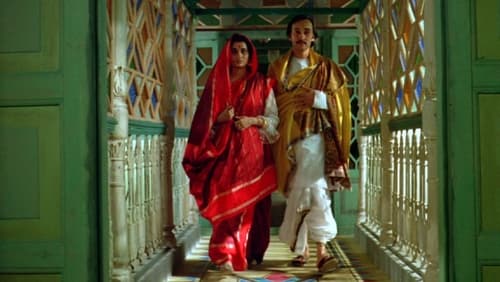
Editor
When the movie opens, a woman is recalling the events that molded her perspective on the world. Years ago, her husband, a wealthy Western-educated landowner, challenged tradition by providing her with schooling, and inviting her out of the seclusion in which married women were kept, to the consternation of more conservative relatives. Meeting her husband's visiting friend from college, a leader of an economic rebellion against the British, she takes up his political cause, despite her husbands warnings. As the story progresses, the relationship between the woman and the visitor becomes more than platonic, and the political battles, pitting rich against poor and Hindu against Moslem, turn out not to be quite as simple as she had first thought.

Editor
A day in the life of a six-year-old child in Calcutta, who lives shut up in the family home, insulated from the city by a park. The father is away at work. The grandfather is alone in his room, ill and confined to his bed. The mother receives her lover.

Editor
When a poor and out-caste village tanner goes to village priest to get the date of his daughter's marriage fixed, the priest in turn asks for labor without pay in exchange.
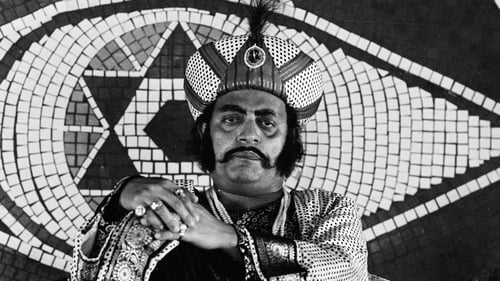
Editor
When Goopy and Bagha learn about Hirak Raja's tyranny, they try to set him right with the help of Udayan, a school teacher, and their magical powers.
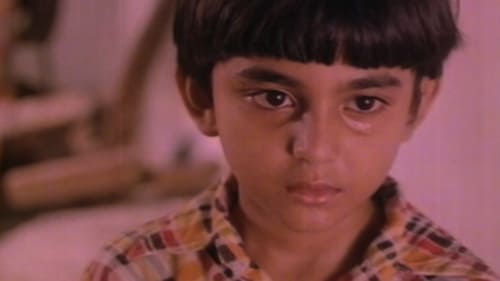
Editor
Set in the holy city of Benares, this is the second film about the detective Feluda, in which he goes for a holiday along with his cousin, Topshe and his friend, Lalmohan Ganguly. But the theft of a priceless deity of Lord Ganesh (the Elephant God) from a local household forces him to investigate.
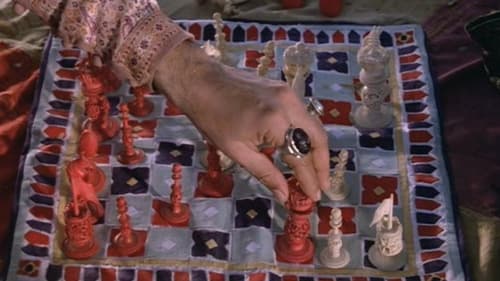
Editor
It is the year 1856. Nawab Wajid Ali Shah is the king of Awadh, one of the last independent kingdoms of India. The British colonialists, intent on controlling this rich land, have sent general Outram on a secret mission to clear the way for an annexation. Pressure is mounting amidst intrigue and political manoeuvres, but the Nawab whiles away his time in pursuit of pleasure and religious practice. The court is of no help either—Court nobles Mir and Mirza, ignoring the situation of their country and all their duties towards their families, spend their days playing endless games of chess. The film is based on Munshi Premchand's short story of the same name.
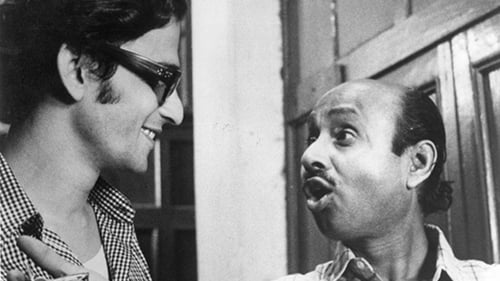
Editor
A bright and idealistic young graduate steels himself for a dog-eat-dog world, only to flounder in a job market packed with thousands of other hopefuls. When he eventually decides to start his own business as a middle-man, he discovers that the world of business does not live up to his lofty ideals.

Editor
A documentary about the aging prima ballerina Balasaraswati (popularly known as "Bala"), the most famous exponent of the Bharatanatyam dance.

Editor
A young boy becomes a target for crooks, after he claims to remember his past life and mentions precious jewels in a golden fortress.
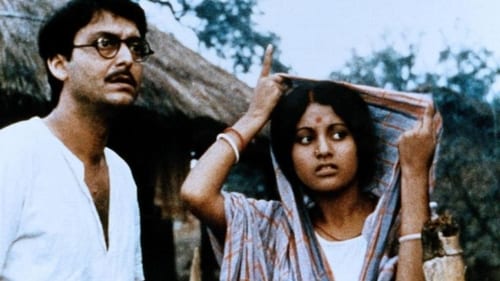
Editor
Gangacharan is the new Brahmin of a village, where he assumes various duties: teaching, organizing religious events, and trying to prevent epidemics. But in that year 1943, war is raging (as reminded by the planes occasionally heard flying over the countryside), and a major famine is under way. As food shortages reach catastrophic proportions, Gangacharan attempts to preserve his privileged situation, while his generous wife, Ananga, conversely tries to help and support the community.

Editor
The chronicles of Shyamalendu Chatterjee, an ambitious and self-made young man, as he rises his way up the corporate ladder.

Editor
Satyajit Ray's poetic documentary was commissioned by the Chogyal (King) of Sikkim at a time when he felt the sovereignty of Sikkim was under threat from both China and India. Ray's documentary is about the sovereignty of Sikkim. The film was banned by the government of India when Sikkim merged with India in 1975. The ban was finally lifted by the Ministry of External Affairs in September 2010.

Editor
A Middle Aged Woman named Sheba comes to an Obscure town named Nijhumgarh to be the Governess of a Renowned Household called "Raykuthi". But little did she know about the Bungalow and the dwellers. She gets startled to know that two murders took place there nearly seven years earlier. The Mist of the mysterious happenings get only thicker. Now Sheba could only pray for it to Go Away as incidents transcend the rules of our physical world.

Editor
Siddhartho Chowdhury, a brilliant medical student, is forced to leave his studies after his father's sudden demise. He is forced to navigate the high unemployment rate and the communist socio-political climate of 1960s Calcutta in search of a job.

Editor
Goopy Gyne and Bagha Byne are banished from their respective villages for being bad musicians. However, with their skills, they succeed in pleasing the king of ghosts who grants them three boons. How will they succeed in preventing the war between Halla and Shundi which is looming large?
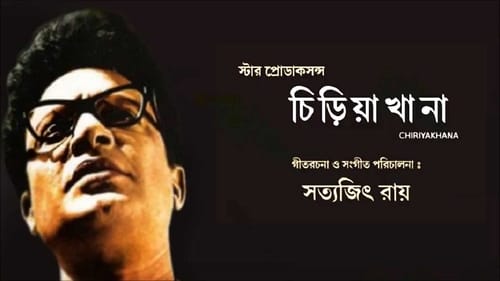
Editor
When Byomkesh Bakshi's new client, Dr. Nishanath Sen, is murdered at Golaap Colony, he decides to probe into the case with the help of his close aide, Ajit.

Editor
Arindam, a matinee idol, is going by train to collect an acting award. On the train, he is confronted by Aditi, a journalist who somewhat unwillingly starts to take his interview. Arindam, won over by Aditi's naivete, starts to disclose his past, his fears and his secrets.
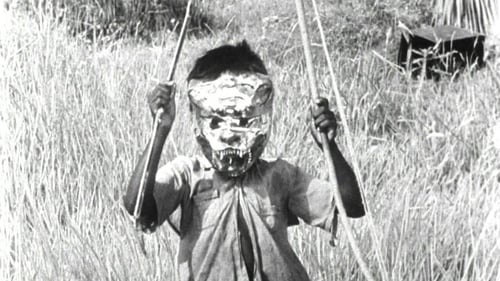
Editor
This short film shows an encounter, through a series of games, between a street child from the shantytowns and a child of a rich family, stationed at his window. The film has no dialogue and the action moves through the attempts at one-upmanship evident in their successive display of their toys. Their rivalry (a kite shot down by a toy rifle, for example) concludes with the opposition between the world of noise (the toys inside the house) and that of music (the street child's flute).

Editor
Amitabha Roy is a Calcutta-based scriptwriter, driving around in the country to collect material for a film. His vehicle breaks down in a small town. A tea planter, Bimal Gupta, offers hospitality for the night. Amitabha is forced to accept the offer as he has no alternative.

Editor
A wandering baba initiates a widower layer and his youngest daughter, irritating her boyfriend Satya and the ever-skeptical Nibaran.
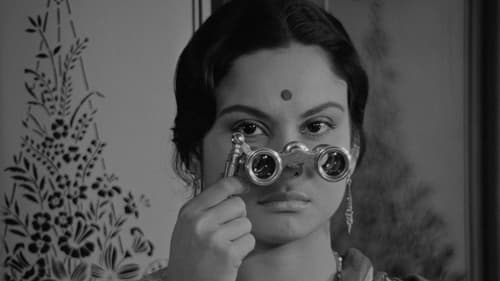
Editor
In 1870s India, Charulata is an isolated, artistically inclined woman who sees little of her busy journalist husband, Bhupati. Realizing that his wife is alienated and unhappy, he convinces his cousin, Amal, to spend time with Charulata and nourish her creative impulses. Amal is a fledgling poet himself, and he and Charulata bond over their shared love of art. But over time a sexual attraction develops, with heartbreaking results.

Editor
Life at home changes when a housewife from a middle-class, conservative family in Calcutta gets a job as a salesperson.
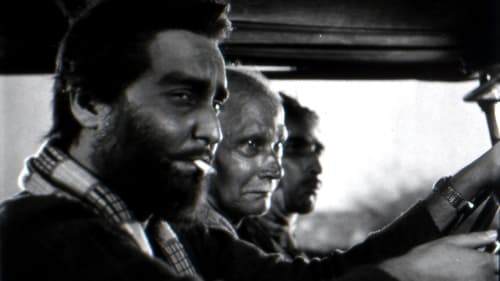
Editor
The story revolves around a North Indian taxi driver, Narsingh, who attempts to reinvent his life by visiting his native place, but instead gets embroiled in a local Marwari businessman's smuggling and human trafficking business.

Editor
Played out in real time, several complex family dramas intersect in the landscape of the Himalayan foothills, allowing the Bengali auteur to examine the class and generational differences of postcolonial India while celebrating the hopes of a society in transition.

Editor
A story about a young man, who had to quit his studies as a doctor due to difficult circumstances, coming back and saving a young lady by performing a very difficult surgery.

Editor
'Teen Kanya' is an anthology film based upon short stories by Rabindranath Tagore, as a tribute on the author's centenary. The title means "Three Daughters", and the film's original Indian release contained three stories, with three central female characters linking the stories together. 'The Postmaster' concerns an orphan girl who grows attached to the postmaster she is caring for after he teaches her to read and write. 'Monihara' is a supernatural tale about a woman obsessed with the jewels her husband buys for her. 'Samapti' follows a young man who falls for an unconventional girl from his new village instead of his arranged bride, the daughter of a respectable family. The international release did not include 'Monihara', and was released as 'Dui Kanya', or "Two Daughters".

Editor
Docudrama about the life of Rabindranath Tagore, Indian polymath—poet, writer, playwright, composer, philosopher, social reformer and painter, who reshaped Bengali literature and music as well as Indian art, becoming in 1913 the first non-European and the first lyricist to win the Nobel Prize in Literature. The film was released during Tagore's birth centenary year.
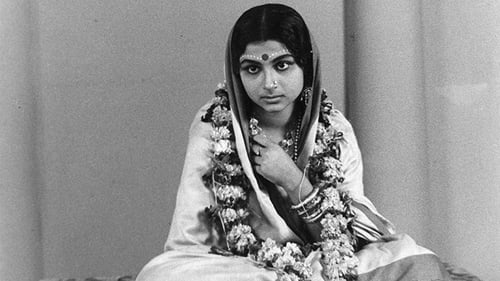
Editor
The life of a woman happily married to the son of an upper-class family in 19th century Bengal is turned upside down when her father-in-law has a vision that she is the Goddess Kali returned to earth. He convinces her to fulfill her role as a living deity and transform her house into a temple.
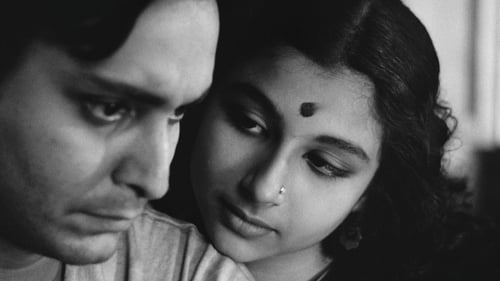
Editor
Apu is a jobless ex-student dreaming vaguely of a future as a writer. An old college friend talks him into a visit up-country to a village wedding...
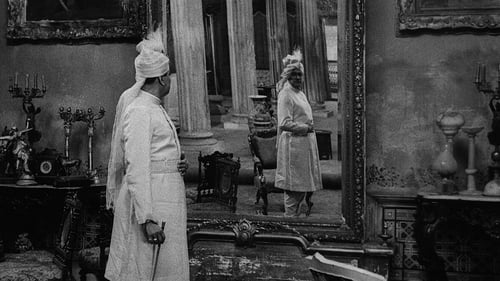
Editor
A wealthy landlord who lives a decadent life with his wife and son. His passion - his wife would call it his addiction - is music, and he spends a great deal of his fortune on concerts held for the locals in his magnificent music room. He feels threatened by his neighbour, a commoner who has attained riches through business dealings. His passion for music and quest for social respect are his undoing, as he sacrifices his family and wealth trying to retain it.

Editor
An underpaid middle-aged clerk finds a stone that changes iron to gold on touch.

Editor
Andhare Alo is a 1957 bengali movie by Haridas Bhattacharya
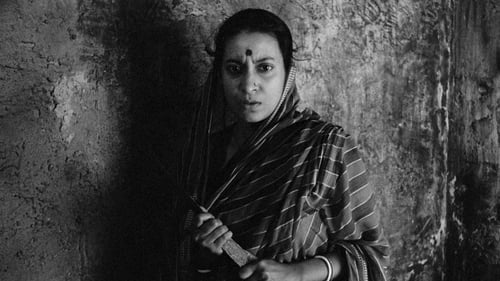
Editor
Aparajito picks up where the first film leaves off, with Apu and his family having moved away from the country to live in the bustling holy city of Varanasi (then known as Benares). As Apu progresses from wide-eyed child to intellectually curious teenager, eventually studying in Kolkata, we witness his academic and moral education, as well as the growing complexity of his relationship with his mother. This tenderly expressive, often heart-wrenching film, which won three top prizes at the Venice Film Festival, including the Golden Lion, not only extends but also spiritually deepens the tale of Apu.
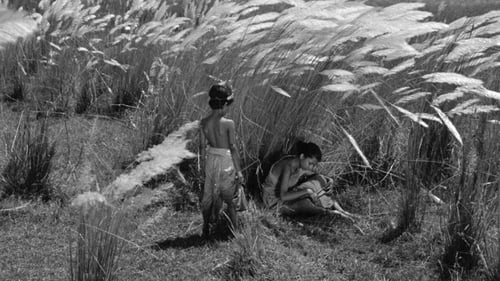
Editor
Impoverished priest Harihar Ray, dreaming of a better life for himself and his family, leaves his rural Bengal village in search of work.




































